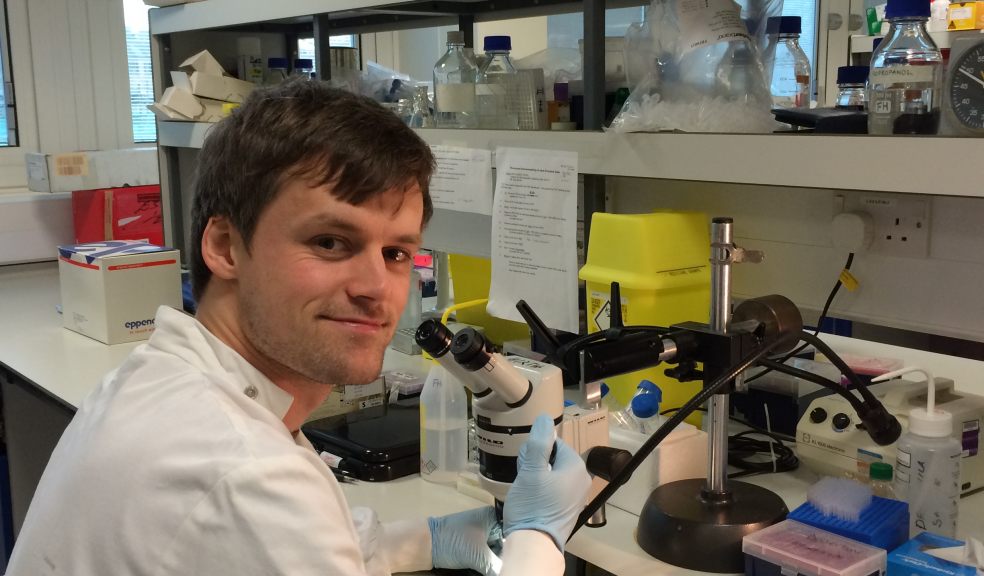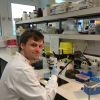
Devon student to speak at dementia conference
A student, hailing from Okehampton, Devon, will present his latest findings at the UK’s largest dementia research conference.
The Alzheimer’s Research UK Conference 2015 is the biggest meeting of dementia research experts in the country and takes place in London on 10-11 March. Alan Stepto will take to the stage to share his results with more than 400 other researchers in a bid to work together to find a cure.
Devon-bred Alan Stepto is a PhD student working at King’s College London and funded by Alzheimer’s Research UK, the world’s largest dedicated funder of dementia research. His work focuses on unravelling the causes of a rare form of dementia, called frontotemporal dementia (FTD). FTD is a common cause of dementia in people under the age of 65 and can affect a person’s personality and behaviour.
Some cases of FTD are caused by a faulty gene, but researchers are still trying to unravel how this causes damage to nerve cells and how this leads to the symptoms experienced by those with the disease. Sadly there are no treatments that halt the spread of damage through the brain. Alan has spent the last two and a half years trying to disentangle the complex biological chain of events initiated by the faulty gene. By getting a better handle on the events that cause nerve cell damage, researchers will be able to intervene and develop new treatments.
Today (Wednesday 11 March), he will reveal his latest findings to a conference of world-class experts, hoping to inspire them in their own work to tackle the growing dementia crisis.
Alan Stepto said: “I am really honoured to share my work at the Alzheimer’s Research UK Conference 2015 and hopefully prompt new ideas amongst the research community. Frontotemporal dementia is a complex disease which affects personality, behaviour and social awareness, as well as memory in the later stages.
“I use fruit flies to investigate how different forms of a toxic biological molecule cause changes in behaviour in FTD. While using fruit flies to study a human disease might seem strange, we share a lot of our DNA with these insects. They are incredibly useful for studying the basic biological changes that occur at the beginnings of disease – something that is not possible in people. Crucially, these experiments will help me tease apart the causes of FTD and I hope my work will take us closer to a treatment for this devastating disease.”
The brain is the most complex structure in the known universe and understanding how it works and how it goes wrong in dementia is an important challenge for researchers. Across the world, scientists are taking different approaches to help people with dementia and the Alzheimer’s Research UK Conference 2015 will bring together experts from a range of research disciplines.
Dr Laura Phipps from the charity Alzheimer’s Research UK, said: “There are over 850,000 people in the UK with dementia and nearly 13,000 of those live in Devon. Alzheimer’s Research UK is currently investing over £1.6m of dementia research in the South West, but with research into the condition still hugely underfunded, we must all act to change the lives of those affected.
"We are committed to not only funding pioneering research throughout the UK, but also investing in people. By training up the next generation of researchers, like Alan, we will boost the numbers of scientist tackling the condition and improve the lives of people with dementia.”

















